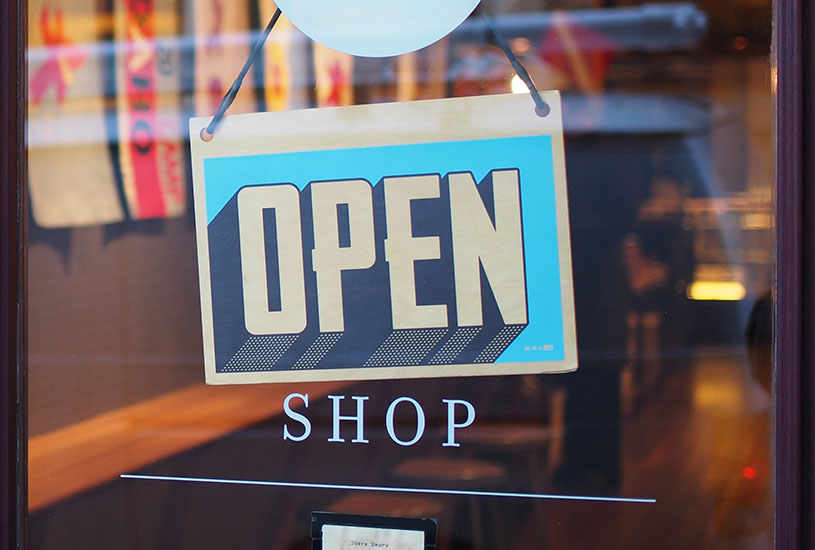A DBS research centre is providing policy solutions for Australia’s smaller business players.
Deakin Business School’s IPA-Deakin SME Research Centre is playing a key role in influencing government policy that will boost the long-term viability of Australia’s small business sector.
As a direct result of research and proposals by the centre, the federal government recently announced the creation of a $2B Australian Business Securitisation Fund which will provide more access to finance for the nation’s small-to-medium enterprises (SMEs).
The announcement follows recommendations by the 2015 IPA-Deakin Australian Small Business White Paper, a policy document commissioned by the Institute of Public Accountants (IPA) which advocates a focus on three key pillars – human capital (people), financial capital (investment) and technological change (innovation) – to improve the productivity of the SME sector.

Policy impacts
Co-author and Director of the IPA-Deakin SME Research Centre, Professor George Tanewski says the 2015 white paper provided substantial emphasis on Australian competition policy which went on to influence government policy.
‘In particular we examined issues around market dominance and the paper played a key role in terms of changing the way the legislation and corporations act. There were two pieces of legislation that it really influenced … the first was misuse of market power and the second was unconscionable conduct provisions of Australian consumer law.’
CEO of the IPA and Deakin Adjunct Professor Andrew Conway says the government’s securitisation fund announcement reflects significant structural reform to small business finance in Australia.
‘These policy changes will have long-term impacts on the viability of the small business community and a direct result of the applied research undertaken through the IPA Deakin SME Research Centre. This model of applied research is clearly leading the world in delivering critical reform the SME sector backed up with tangible policy announcements.’
After 18 months of extensive research and consultation a 2018 version of the paperwas released which focuses on declining productivity levels and provides policy solutions for small business.

Small business lifts national productivity
Prof. Tanewski’s work has also resulted in the publication of a research paper exploring the production efficiency of Australian businesses in the Level-A journal Small Business Economics.
He says Australian small businesses play an important role in lifting national productivity growth.
‘Importantly, they also lift national living standards through a variety of ways including improved diffusion of knowledge, products, processes and technologies across businesses.’
Conducting multidisciplinary research on small and medium size private businesses and not-for-profit enterprises, the IPA-Deakin SME Research Centre engages widely with industry and plays a key role in the under-utilised area of SME research in business, economics and accounting.
‘SMEs make up 99.6% of all private companies in the Australian economic environment which in terms of numbers is around 2.1 million small businesses. However it’s an Australian-wide phenomenon that business schools tend to only look at capital markets – which means primarily listed companies– while SMEs (in terms of sheer numbers) swamp everyone else and are a significant player in the economic environment,’ explains Prof. Tanewski.
By using ‘live research’ – such as information from the Australian Bureau of Statistics and the Australian Tax Office – the centre is able to provide robust empirical evidence that’s applicable to the SME sector.
‘We also utilise a longitudinal data set which means we can look at the behaviours of a firm over a long period of time. This gives us the ability to pre-empt any potential problems that may be coming up for SMEs,’ adds Prof. Tanewski.
Tackling mental health issues
In terms of exploring the types of issues that concern SMEs, the centre is emerging as a ‘thought leader’ by pushing the boundaries around its thinking and focus.
‘For example in the 2018 paper we highlighted the work we’re doing with a mental health research project where we are working with Deakin’s Faculty of Health to look at how we can help small business owners.’
He says other Deakin research has revealed that a disturbingly-high proportion of SME owners suffer from mental health issues.
‘Purely from a dollars and cents perspective, if you’re a small business owner who is both unwell and stressed it permeates right through the whole work force. And that has the potential to create a dysfunctional company with a knock-on effect to employees, their families, and even other companies.’
Solutions for SME challenges
With Australian SMEs facing numerous challenges – including fallout from the banking royal commission, a more volatile world capital market, and the increasing use of artificial intelligence, Prof. Tanewski believes universities have a responsibility to provide research and policy recommendations that will enhance Australia’s small business sector.
‘Universities are partially-funded by the government so I think it is incumbent on us as academics to demonstrate, through the work of the IPA-Deakin SME Research Centre, that taxpayers money is being used for a common purpose. If we can inform and enlighten better policies, these inputs we provide into the policy debate will hopefully improve social and economic benefits for all Australians.’
Deakin Business School



